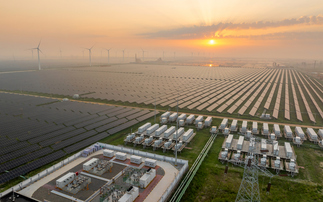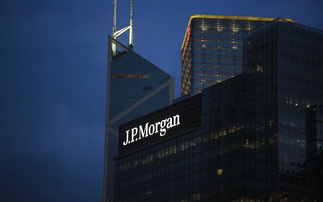More than 130 major banks holding assets of $47tr pledge to align strategies with the Paris Agreement and UN Sustainable Development Goals
More than 130 global banks collectively holding $47tr in assets have pledged to align their businesses with the Paris Agreement and the Sustainable Development Goals (SDGs) as part of a new UN initiative to scale-up the financial industry's contribution to climate action worldwide.
Banks representing around one third of the entire global banking sector, including major names such as BNP Paribas, Santander, and Barclays, have signed up to the Principles for Responsible Banking, which were officially launched today ahead of this week's crucial UN Climate Summit in New York.
By signing up to the Principles, the 131 banks have all promised to strategically align their business with the goals of the Paris Agreement on climate change, which commits the world to maintaining global average temperatures 'well below' 2C of warming by the end of the century.
Moreover, signatories must also align their strategies with the UN SDGs, which feature 17 headline targets on sustainable development to be achieved worldwide by 2030 on issues such as climate action, economic growth, inequality, poverty, and clean energy.
UN Secretary-General António Guterres described the Principles as "a guide for the global banking industry to respond to, drive and benefit from a sustainable development economy".
"The Principles create the accountability that can realise responsibility, and the ambition that can drive action," added Guterres, who organised tomorrow's UN Climate Action Summit as a means of encouraging more countries to step up their climate commitments under the Paris Agreement.
Other banks signed up to the Principles include RBS, UBS, Lloyds, Barclays, China's Industrial Bank, DNB, Citi, Triodos and Credit Suisse.
All signatories are expected to set clear implementation plans for the Principles alongside ambitious climate and sustainability targets, in a bid to create a common framework to help banks grow their business, reduce their exposure to climate risks, and support the transition to a more sustainable economy, the UN said.
Barclays' chief executive Jes Staley said a business could only thrive in a sustainable society that "uses its resources in a responsible manner".
"We want to use our services, products and relationships to support and accelerate the fundamental changes in economies and in lifestyles needed to achieve shared prosperity for current and future generations," he said.
Inger Andersen, executive director of the United Nations Environment Programme (UNEP), explained that the banking and private sectors could benefit from investing in a more sustainable economy, highlighting UN estimates that addressing the SDGs could unlock $12tr in business savings and revenue each year as well as creating 380 million more jobs by 2030.
"A banking industry that plans for the risks associated with climate change and other environmental challenges can not only drive the transition to low-carbon and climate-resilient economies, it can benefit from it," she said. "When the financial system shifts its capital away from resource-hungry, brown investments to those that back nature as a solution, everybody wins in the long-term."
But while clamour for climate action is growing with a host of countries, including the UK and France, committing to achieve net zero emissions by the middle of the century, worldwide commitments remain far short of what is needed to restrict global warming to 1.5C.
Christiana Figueres, former Executive Secretary of the UNFCCC, said more ambition and a step-change in investment from the private and financial sector was therefore crucial to tackling the climate challenge and halting overconsumption of the planet's resources.
"To transit to low-carbon and climate-resilient economies that support the goals of the Paris Agreement requires an additional investment of at least $60tr from now until 2050," she said. "As the banking sector provides over 90 per cent of the financing in developing countries and over two thirds worldwide, the Principles for Responsible Banking are a crucial step towards meeting the world's sustainable development financing requirements."










